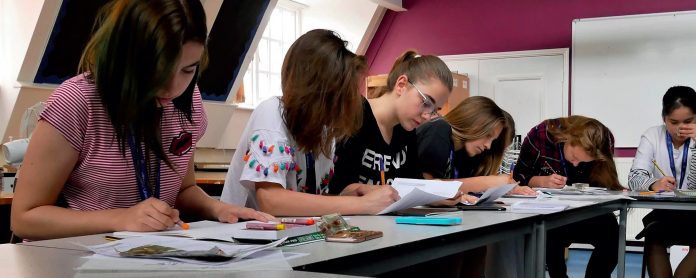Melanie Butler investigates the ELT methods used in Britain’s boarding schools
When you talk to teachers in British boarding schools about teaching academic subjects in English to international kids, the name you hear most often is ‘BAISIS’.
The British Association of Independent Schools with International Students, to give BAISIS its full name, has some 60 members among British independent schools. all of whom, as their name suggests, enrol international pupils whose first language is not English.
Since it was founded, in 1997, BAISIS has been pioneering ways of supporting English learning for L2 children. “The approach has always been very pragmatic,” says Lee Hawkes of St Edmond’s College. “It doesn’t start with theory and principles, it concentrates on what works.”
But as Lee, former head of EAL at St Edmund’s and now in charge of its summer school operations, points out, success in boarding schools is not just about language levels. “The question is not just do they pass IELTS, but also do they pass maths?”
BAISIS members include a wide variety of types of school, adopting a wide variety of methods. The association was started, for example, by a group of Independent Study Centres or ISCs. These are schools which specialise in preparing L2 children for entry into mainstream education by improving their English, while keeping up their subject knowledge in key areas like maths and science.
The approach they evolved, and generally still use, is a mix of English language lessons, focusing on EAP, and language-aware subject teaching. It could be described perhaps, as EMI+ (English as a Medium of Instruction). The secret of success for the ISCs is in experience. The academic subject staff need experience in working with L2 children, and the English language teachers need to have worked in an academic environment.
Take the staff profiles of the teachers at Bishopstrow College, the top-performing ISC, based on British Council inspection. The head teacher, Stuart Nicholson, started in mainstream independent schools before moving to an international sixth form college, another type of school which features widely in BAISIS. By contrast, the director of studies trained as a school teacher but worked in EFL in both overseas private language schools, in a London international schools and in university pathway programmes.
A similar mix of EMI-informed academic instruction and EAP-focused language teaching also works well for sixth form colleges, like Concord College, and 14+ boarding school members, such as the King’s Group, where the student intake is wholly or mainly non-native speakers.
As Elyse Conlon, of Moreton Hall ISC explains, many boarding schools have turned to mainstreaming English language learners. Not only because the English language level of new students is now higher, but also because, “parents are increasingly insisting on full school integration.”
Elyse, who is head of EAL (English as an Additional Language) at Moreton Hall, explains the approach. “The term EAL comes from the state school system. Generally, in independent schools it means that English language learning is treated as a school subject, with its own specialist department.”
The difference from language schools, of course is that school students need to acquire not just general English, but the transactional language of school, and the academic English which underpins not only their school subjects but also the all-important IELTS exam.
Elyse, who is deputy chair of BAISIS and heavily involved with its much-lauded Continuous Professional Development Programme, says that attention is switching to helping teachers of other subjects support their language learners. “CLIL is becoming very fashionable,” she admits.
For Elyse, introducing subject teachers to CLIL techniques is “a way of up-skilling our colleagues, making them more language aware,” in a classroom environment where non-native speakers are in a minority.
But CLIL principles are also beginning to influence the EAL classroom, too. Why not use texts from the geography class to illustrate the passive voice, or teach vocabulary from physics? “It’s all about embedding the subject language into their learning.”
This ‘soft CLIL’ approach is also being adopted into the international summer schools offered by many BAISIS members, as the market demand moves away from general English and towards English for education.
Our top-ranking summer boarding school, St Edmund’s College, for example, added soft CLIL content to its language classes. As Lee Hawkes notes, success, as always, depends on getting the right teacher to teach the right subject. “Maths and EFL teachers are generally not a great mix,” he says, adding, “But literature, drama, big social issues – that’s where EFL teachers really excel.”







